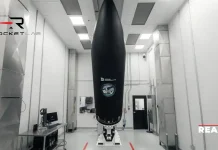Clean Energy Systems, Inc. (CES) announced that it entered into an agreement to acquire the idled Madera Biomass Power Plant (located in Madera County, California). CES intends to convert the existing facility into a Biomass Carbon Removal and Storage (BiCRS) Facility.
“We are excited for the opportunity to expand our efforts to address the challenges of climate change, improve air quality in the Central Valley and make a vital contribution to the local economy by converting an idled biomass plant into a BiCRS facility,” said Keith Pronske, CES’ President and CEO. “We look forward to engaging and working with all neighboring landowners and other stakeholders as we progress this critical project in the coming months.”
The facility, once converted into a BiCRS facility, will convert agricultural waste biomass from local farms, into a renewable synthesis gas that will be mixed with oxygen in a combustor to generate electricity and/or hydrogen. More than 99% of the carbon from the process is expected to be captured for permanent storage by safely injecting carbon dioxide (CO2) underground into nearby deep geologic formations. By using biomass fuel that consumes CO2 over its lifetime to produce energy and then safely and permanently storing the produced CO2, the process is designed to result in net-negative carbon emissions, effectively removing greenhouse gas from the atmosphere.
The new BiCRS facility, when completed, is expected to remove about 600,000 tons of CO2 annually, which is equivalent to the emissions from electricity use of more than 130,000 U.S. homes. It also will help improve air quality in the San Joaquin Valley by using approximately 400,000 tons of agricultural waste annually (which otherwise would have been burned), in line with the California Air Resources Control Board plan to begin phasing out agricultural burning in the San Joaquin Valley by 2025.
Working with its partners, CES plans to evaluate the Madera Biomass Power Plant for conversion to a BiCRS facility using CES’ proprietary oxy-fuel technology that contributes to cost-effective carbon capture. BiCRS is identified as a low-cost form of engineered carbon removal, resulting in net energy production without routine emissions of nitrous oxide, carbon monoxide and particulates from combustion produced by conventional biomass plants.




